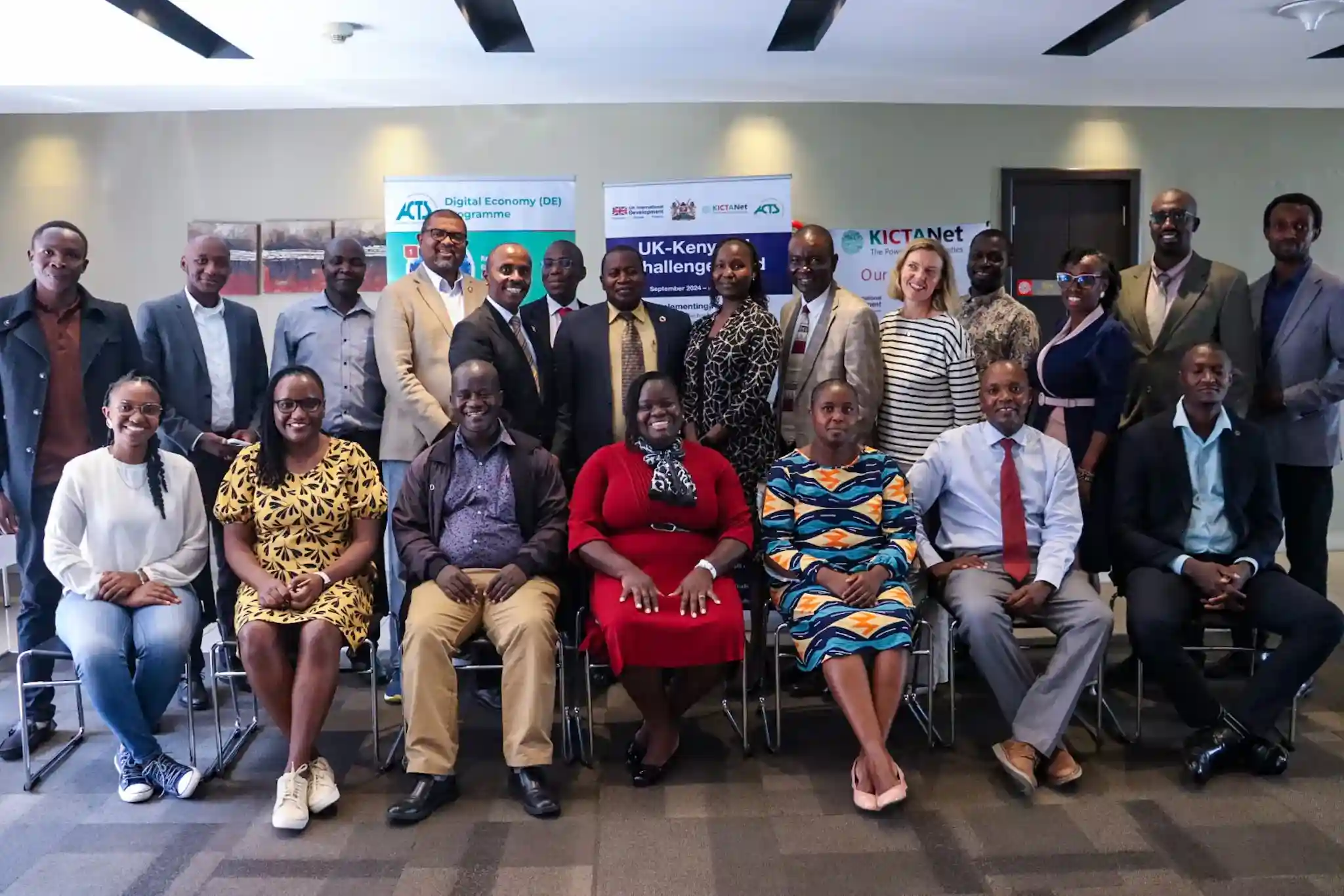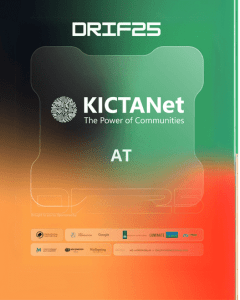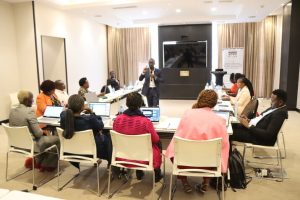The African Centre for Technology Studies (ACTS) convened a meeting on Tuesday to review the UK-Kenya AI Challenge Fund, launched in November 2024.
This initiative, part of the UK Digital Access Program, aims to foster AI innovation and collaboration, focusing on AI safety, ethics, inclusion, and governance. The initial funding phase concludes in March 2025, with plans to support scalable projects.
“This scaling up, as I said, is crucial. As many of you know, the initial funding phase is expected to conclude at the end of March 2025… This phase is particularly crucial, as it will give the UK-Kenya partnership the chance to amplify the impact of AI innovations driving further advancements in sectors critical to our economic development,” said Ali Hussein, Chairperson, KICTANet Board of Trustees, during the review.
He added, “This collaborative approach with the UK as a trusted partner has allowed us to tackle critical issues such as data sovereignty, AI ethics, digital inclusion and AI workforce development.”
Key achievements include capacity building, policy development, and addressing data sovereignty and AI ethics. ACTS emphasized the importance of scaling solutions and collaborating with partners. The British High Commission Nairobi stressed the need for ethical, scalable, and sustainable AI solutions and the initiative’s regional impact.
“This challenge fund is one of the first of its kind in Africa, and it’s getting a lot of attention from our partners across the region,” disclosed Emmeline Skinner of the UK’s East Africa Research and Innovation Hub.
She emphasised, “We talk a lot in development about, how we partner. What does an equitable partnership look like? What does good collaboration look like? I feel like AI is one of these global and mainly global opportunities. It’s also a global challenge. It’s something where we need to work in partnership. No one is going to be able to solve the challenges of working alone. We have to bring together skills and expertise and talent and work in this collaborative, equitable way…”
Honourable John Kiarie, Chair of the Parliamentary Committee on Communication, Information and Innovation, highlighted the importance of practical AI solutions for community problems and the need for ethical, scalable, and sustainable AI.
“For Kenya, rather than looking east or west, I think Kenya needs to look within, and that’s why I’m so excited by this UK, Kenya partnership going on forward sustainably because by looking within, we might offer that solution that the world is looking for even a scale.”
The UK-Kenya partnership was presented as a model for global AI solutions, encouraging Kenya to look inward for innovative AI strategies.
The review also touched on some of the solutions developed by the 10 beneficiaries of the UK-Kenya AI Challenge Fund which include: AI legal framework, AI empowering PWDs and older citizens, prototypes to create HIV awareness among Youths and adolescents among other projects.
Some of the challenges that were identified in the projects include: lack of open data sets, regulatory environment especially in the health sector and policy gaps.
Hon Kiarie urged the participants to use parliament in addressing the gaps so that there is timely data which can be accessed in reliable manner.
“The patchwork approach to IP law doesn’t work. We need a comprehensive intellectual property policy to protect our IP space in this new world. The brainpower in this room is enough to have Kenya lead this revolution—not just in East Africa, not just in Africa, but in the world,” said MP Kiarie.
![]()





How can I be involved so that I benefit from this fund.i am requesting to be part of the team